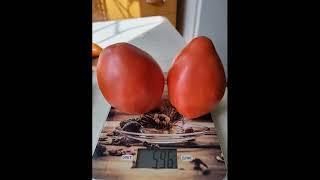Organic natural farming is a holistic approach to agriculture that emphasizes the use of natural methods to grow crops and raise livestock. Here are some key principles and practices of organic natural farming:
Principles:
1. _Soil conservation_: Protect and enhance soil health through natural means.
2. _Biodiversity_: Promote ecological balance by growing diverse crops and maintaining ecosystem services.
3. _Natural pest control_: Encourage beneficial insects and use physical barriers to manage pests.
4. _Organic amendments_: Use natural fertilizers like compost, manure, and green manure to enrich soil.
5. _Minimum external inputs_: Reduce reliance on external inputs like synthetic fertilizers and pesticides.
Practices:
1. _Composting_: Convert waste into nutrient-rich fertilizer.
2. _Crop rotation_: Rotate crops to maintain soil fertility and structure.
3. _Cover cropping_: Plant cover crops to prevent erosion and add organic matter.
4. _Mulching_: Apply organic mulch to retain moisture and suppress weeds.
5. _Integrated pest management_: Use a combination of techniques to manage pests and diseases.
6. _Livestock grazing management_: Manage grazing to maintain soil health and promote biodiversity.
7. _Agroforestry_: Integrate trees into farming systems to promote ecological interactions.
Benefits:
1. _Improved soil health_
2. _Increased biodiversity_
3. _Better water quality_
4. _Reduced chemical use_
5. _Enhanced ecosystem services_
6. _Supports local food systems_
7. _Promotes climate resilience_
Challenges:
1. _Lower yields_ (initially)
2. _Higher labor costs_
3. _Marketing challenges_
4. _Limited access to organic inputs_
5. _Weather variability_
By adopting organic natural farming practices, farmers can create a more sustainable and resilient agricultural system that benefits both the environment and human health.
Principles:
1. _Soil conservation_: Protect and enhance soil health through natural means.
2. _Biodiversity_: Promote ecological balance by growing diverse crops and maintaining ecosystem services.
3. _Natural pest control_: Encourage beneficial insects and use physical barriers to manage pests.
4. _Organic amendments_: Use natural fertilizers like compost, manure, and green manure to enrich soil.
5. _Minimum external inputs_: Reduce reliance on external inputs like synthetic fertilizers and pesticides.
Practices:
1. _Composting_: Convert waste into nutrient-rich fertilizer.
2. _Crop rotation_: Rotate crops to maintain soil fertility and structure.
3. _Cover cropping_: Plant cover crops to prevent erosion and add organic matter.
4. _Mulching_: Apply organic mulch to retain moisture and suppress weeds.
5. _Integrated pest management_: Use a combination of techniques to manage pests and diseases.
6. _Livestock grazing management_: Manage grazing to maintain soil health and promote biodiversity.
7. _Agroforestry_: Integrate trees into farming systems to promote ecological interactions.
Benefits:
1. _Improved soil health_
2. _Increased biodiversity_
3. _Better water quality_
4. _Reduced chemical use_
5. _Enhanced ecosystem services_
6. _Supports local food systems_
7. _Promotes climate resilience_
Challenges:
1. _Lower yields_ (initially)
2. _Higher labor costs_
3. _Marketing challenges_
4. _Limited access to organic inputs_
5. _Weather variability_
By adopting organic natural farming practices, farmers can create a more sustainable and resilient agricultural system that benefits both the environment and human health.
- Категория
- Севооборот
Комментариев нет.




